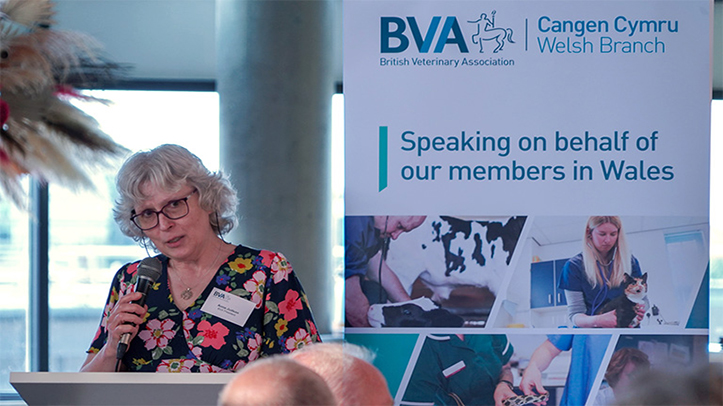British Veterinary Association (BVA) president has called on Welsh colleagues to support urgent reform of ‘not fit for purpose’ Veterinary Surgeons Act at the organisation’s annual Welsh Dinner.
BVA president Dr Anna Judson called for urgent modernisation and cited the ongoing Competition and Markets Authority’s (CMA) investigation into the UK veterinary services market for pets as an opportunity to reform the ‘outdated’ Veterinary Surgeons Act 1966.
In her speech to around 80 guests, including the Welsh Government’s Cabinet Secretary for Climate Change and Rural Affairs, Huw Irranca-Davies MS, Dr Judson said: “We’ve been lobbying for veterinary legislative reform for some time and have secured cross-party support.
“While progress is being made, it’s slow, and we hope that the Competition and Markets Authority’s investigation will act as a catalyst for this much needed change. It is simply not possible to build a modern and effective veterinary profession on the foundations of legislation which was created in a different era.”
She also emphasised how the current act ‘fails to embrace the full potential of the wider veterinary team’ and specifically called for the title of ‘vet nurse’ to be recognised in law, reflecting that vet nurses are highly qualified and bring a wealth of experience to practice teams.
Alongside the need to reform veterinary legislation, and with a general election imminent, Dr Judson highlighted a number of key areas for reform outlined in BVA’s manifesto for animals, including additional pieces of animal welfare legislation to ban electronics shock collars and tackle both livestock worrying and pet import, pledging to take these important issues forward once a new government is in place.
Reflecting on recent developments in Wales, she praised the work of the Animal Licensing Project Wales to promote responsible dog ownership. Forming part of wider plans to improve animal welfare, the aim of this important project is to ensure that dog breeding establishments are reputable and high quality, which in turn will promote responsible dog ownership.
Dr Judson said: “There is significant veterinary involvement, with vets working with enforcement officers to increase knowledge around fit-to-breed certificates, and providing support in cases where a breeder cannot be signed off.
“While the Animal Licensing Project has achieved considerable success to date, to develop it further, more sustainable funding is required so that it can become a benchmarking organisation and standardise practice across Wales. We ask for your support in achieving this.”


